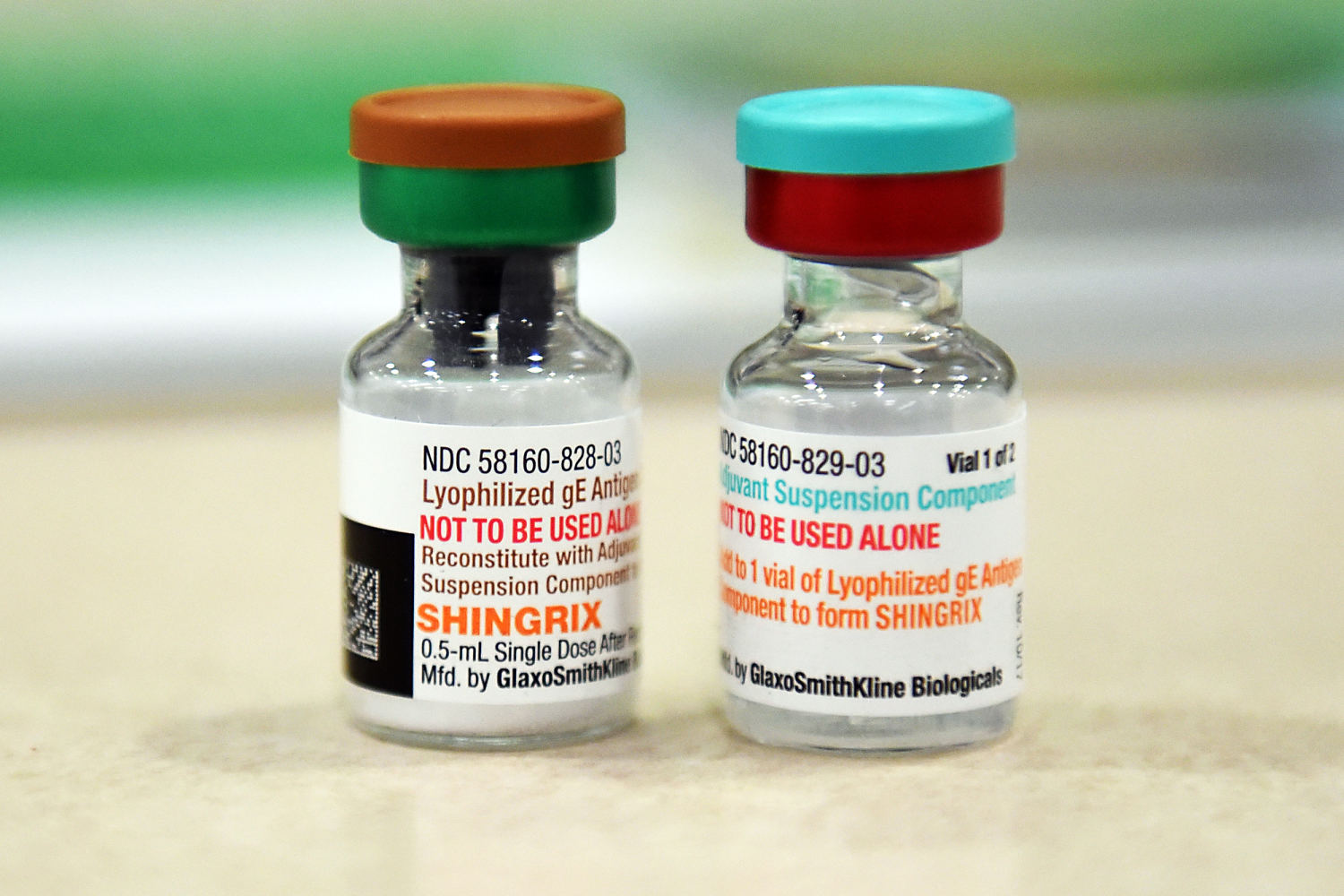
Getting vaccinated against shingles — a painful and debilitating condition that can flare up years after infection from varicella zoster — not only lowers the risk of infection, but may also offer some protection against dementia, a provocative new study suggests.
The new research Published Wednesday in Nature, this study examined information from over 280,000 elderly individuals in Wales and discovered that those who got the initial shingles live virus vaccine had a 20% lower likelihood of developing any form of dementia compared to unvaccinated individuals.
Previous research has found an association between the Shingrix shingles vaccine , which replaced the live virus version in 2020, and a lower risk of dementia, especially in women. But that link wasn't considered as strong because that study design couldn’t account for potential differences between those who were vaccinated and those who were not, such as the possibility that the vaccinated people might have been healthier overall. Shingrex, which targets a tiny bit of viral DNA, turned out to have a longer lasting effect than the original vaccine.
The new study was possible because of an unusual public health policy in Wales that provided a “natural experiment” to explore the potential impact of the vaccine on dementia risk. With the rollout of the vaccine in 2013 in Wales, shots were offered to people born on or after Sept. 2, 1933, but not those who were born before that date.
That allowed the German and Stanford University researchers to compare two groups of people with similar health characteristics who differed only by one week in age, making them essentially the same except that the vaccine was available to the younger population but not the older, said Dr. Pascal Geldsetzer, an assistant professor of medicine at Stanford University and senior author of the study.
What’s exciting about the study is that it’s essentially like a randomized controlled trial, considered the gold standard in research, he said.
The way the original vaccine was rolled out in Wales provided a unique opportunity, said Allison Aiello, a professor of epidemiology at the Columbia University Aging Center in New York City.
“It’s like having a control group compared to a treated group,” said Aiello, who was not associated with the new research. “What’s interesting is the finding of 20% protection. That is a pretty strong effect, which does fit with other research suggesting that herpes viruses might have an influence on dementia.”
Scientists don’t know exactly how the chickenpox virus raises the risk of dementia. It’s been shown that reactivation of the virus can lead to the accumulation of aberrant proteins associated with Alzheimer’s, for example, Geldsetzer said. It’s also possible that the virus might spark a reactivation of herpes simplex which previous studies have associated with dementia.
Herpesviruses always remain present in your body indefinitely. , yet they remain dormant within the body until the immune system weakens. As we age, our immune defenses naturally diminish, potentially allowing the virus to reactivate as shingles, an unpleasant condition. side effect of chickenpox .

The age-related impact is responsible for this phenomenon because the shingles vaccine is available exclusively to individuals aged 50 and above in the U.S. It requires two doses administered between two to six months apart.
Experts indicate that herpes viruses, such as oral and genital herpes simplex, seem capable of infiltrating the central nervous system.
In fact, a 2024 study discovered that out of those 70-year-olds who didn't have dementia initially, individuals diagnosed with herpes simplex had over double the chance compared to those not infected to be affected by dementia throughout a subsequent 15-year period.
Herpes simplex can wreak havoc if it passes through the blood-brain barrier. It can cause inflammation of both the meninges (meningitis) and the brain (encephalitis). Both can be fatal.
Bolstering the case for the shingles vaccine protecting against dementia were the findings from a study published in Nature Medicine in 2024 that analyzed medical records from more than 100,000 patients. That analysis suggested the newer shingles vaccine was associated with even better protection against dementia.
In that study, researchers also investigated whether two other vaccines — for influenza and tetanus, diphtheria and pertussis — had any impact on the risk for dementia. They did not.
The key takeaway from the Stanford study, according to Dr. Aarati Didwania, a professor of medicine and medical education at Northwestern University’s Feinberg School of Medicine in Chicago, is that vaccination could potentially reduce the likelihood of developing dementia.
It's not entirely clear how the vaccines could provide protection against dementia, according to Didwania. "However, it raises an interesting query," she noted further. "Could this be due to reduced inflammation or stopping the virus from becoming active again?"
Didwania mentioned that there is definitely a valid justification for receiving vaccinations.
"Shingles is a dreadful, agonizing, and disabling ailment that can result in severe chronic pain," she stated.
The recent research has certain constraints. Although it demonstrates the effectiveness of the vaccination in practical conditions, this does not equate to the rigor of a randomized controlled trial, noted Dr. William Schaffner, an infectious disease specialist at the Vanderbilt University Medical Center located in Nashville, Tennessee. However, conducting such random assignments for vaccines would raise significant ethical concerns, he explained.
“He described the research as provocative, intriguing, and thrilling.”
Schaffner suggested that the Food and Drug Administration might examine studies connecting shingles vaccinations with a reduced likelihood of developing dementia, which could then permit the pharmaceutical firm to include this information on the product labeling.
If that does not occur, physicians can utilize the research results to persuade patients to opt for vaccination.
Definitely, there are numerous individuals aged 50 and above who haven't gotten vaccinated," he stated. "Should you mention that certain studies indicate the vaccine could help prevent some forms of dementia, this might influence their decision.
The article was initially posted on DIwida.Blog & News